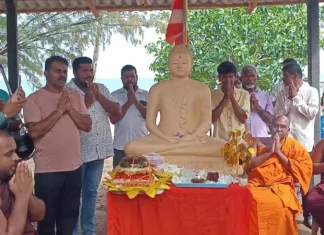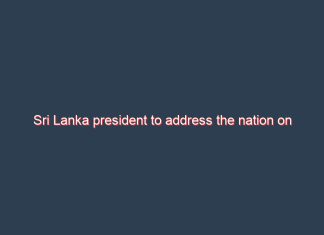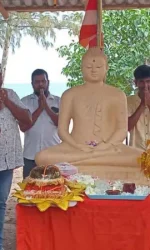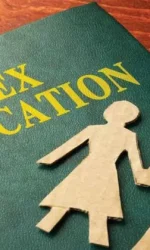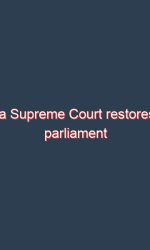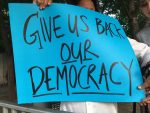FASHION WEEK
- All
- 2019 Presidential Election Sri Lanka
- 2020 General Election Sri Lanka
- 2021 Ishalini's Death
- 2021 Port City Bill
- 2022 Gota Go Home
- 2024 Presidential Election
- 20th Amendment
- 46th session of the Human Rights Council
- 50 days Political upheaval in Sri Lanka
- About
- Ama H. Vanniarachchy
- Archaeology
- Archaeology
- Article
- Biography
- Bond Scam Sri Lanka
- Buddhist monks
- Civil War
- Container 323
- Cultural
- Dollar Crisis Sri Lanka
- Dr. Sarath Weerasekera
- Easter Sunday attacks
- Education
- Election Manifesto
- Events
- F.R. Jayasuriya Foundation
- F.R.Jayasuriya
- featured
- Fertilizer Crisis Sri Lanka
- Gas Explosion
- Highways and Bridges
- Historical
- International
- Keerthi Jayasuriya
- Magazine
- News
- Novel
- Official Language Debate
- Other
- Palitha Senanayake
- Places
- Political
- Politics
- Port City
- Prasad Powatte
- Ranjan Ramanayake leaked
- Religious
- Report
- Review
- Sport
- Sports
- Thissa Viharaya, Jaffna
- trincomalee buddha statue
- Underworld
- video
- World affairs
- දෙව්සිරි පී. හේවාවිදාන
DON'T MISS
- All
- 2019 Presidential Election Sri Lanka
- 2020 General Election Sri Lanka
- 2021 Ishalini's Death
- 2021 Port City Bill
- 2022 Gota Go Home
- 2024 Presidential Election
- 20th Amendment
- 46th session of the Human Rights Council
- 50 days Political upheaval in Sri Lanka
- About
- Ama H. Vanniarachchy
- Archaeology
- Archaeology
- Article
- Biography
- Bond Scam Sri Lanka
- Buddhist monks
- Civil War
- Container 323
- Cultural
- Dollar Crisis Sri Lanka
- Dr. Sarath Weerasekera
- Easter Sunday attacks
- Education
- Election Manifesto
- Events
- F.R. Jayasuriya Foundation
- F.R.Jayasuriya
- featured
- Fertilizer Crisis Sri Lanka
- Gas Explosion
- Highways and Bridges
- Historical
- International
- Keerthi Jayasuriya
- Magazine
- News
- Novel
- Official Language Debate
- Other
- Palitha Senanayake
- Places
- Political
- Politics
- Port City
- Prasad Powatte
- Ranjan Ramanayake leaked
- Religious
- Report
- Review
- Sport
- Sports
- Thissa Viharaya, Jaffna
- trincomalee buddha statue
- Underworld
- video
- World affairs
- දෙව්සිරි පී. හේවාවිදාන
Sri Lanka president to address the nation on Wednesday amid economic...
ECONOMYNEXT – Sri Lanka President Gotabaya Rajapaksa will address the nation on Wednesday (16), his media unit said, as the island nation has been witnessing sharp rise in prices in all essential goods and services following the rupee fall amid public protests.
The content of the speech is expected to be the prevailing situation in the country.
Since the central bank allowed flexibility in the exchange rate on March 8, the rupee has fallen nearly 32 percent so far.
With the rupee fall, prices of fuel, wheat flour, transport, rice parcel, container transport, air tickets, and many other essential goods have been raised and people have started grumbling about the latest cost of living.
The president’s speech also comes as opposition parties have called people to join them for protests against the government’s economic mismanagement and policy failures.
The opposition protests blame Rajapaksa’s Sri Lanka Podujana Party (SLPP)-led government for a messed up fertilizer policy and mismanagement of economic policies.
The main opposition Samagi Jana Balawegaya has planned a protest in Colombo on Tuesday.
The country has seen shortage of fuel, cooking gas, milk powder, sugar, and wheat flour in the recent past mainly due to severe shortage of US dollars as the island nation’s reserves dwindled over 70 percent in the first 11 month of 2021.
The fuel shortage has resulted in extended power cuts across the country. (Colombo/March14/2022)
LATEST NEWS
ත්රිකුණාමලය වෙරළේ පන්සලක් ඉදි කිරීම: ‘කඩා ඉවත් කරන්න ගියේ නීති විරෝධී හෝටලයක්’
ත්රිකුණාමලයෙ ප්රශ්නය – බුදු කුටියක් ඉදි කිරීම
ශ්රී ලංකාවේ පුළුල් ලිංගික අධ්යාපනය(CSE) සහ ලිංගික දිශානතිය සහ ස්ත්රී පුරුෂ භාවය පිළිබඳ අන්තර්ගතය(SOGI)...
POPULAR ARTICLES
Sri Lanka Supreme Court restores sacked parliament
Sri Lanka court denies Rajapakse authority to act as PM
Sri Lanka cabinet clears plan allow new foreign fuel distributors
ECONOMYNEXT – Sri Lanka’s cabinet of ministers has cleared a proposal to allow companies in oil producing countries to distribute fuel as the country is in the grip of a monetary meltdown triggered by mis-targeting of interest rates by a intermediate regime central bank.
At the moment 90 percent of fuel distribution is done by state-run Ceylon Petroleum Corporation and about 10 percent by Lanka IOC.
“Due to the currency crisis faced by Sri Lanka it is a big challenge to supply oil without interruption,” a statement issued after the weekly cabinet meeting said.
“In that situation it is seen as advisable to allow companies in oil producing countries to import and distribute oil using their own resources, without putting pressure on foreign currency problem.”
“The cabinet has approved a proposal by the Minister of Power and Energy to enter into long term agreements with companies selected through an orderly process.”
Energy Minister Kanchana Wijesekera said on June 25 that players may be given 200 to 300 filling stations out of the 1,190 fuel stations operated by state-run Ceylon Petroleum Corporation.
Related
Sri Lanka plans to allow more fuel distributors
However they have to import and distribute oil on credit for 6 to 12 months, he said.
Sri Lanka has a habit of importing oil on credit and selling every time the soft-pegged central bank prints money to mis-target interest rates and triggers currency trouble. The CPC is already heavily indebted due to the soft-pegging and borrowings.
Related
Shock revelation on how Sri Lanka’s CPC ended up with billions of dollar debt
On June 27, a group of CPC workers held Energy Ministry Secretary Mapa Pathirana hostage inside his vehicle and blocked his vehicle from leaving his office in a protest against the privatization plan.
Sri Lanka has had foreign exchange trouble ever since a soft-pegged central bank was set up in 1950 but the current meltdown is the worst in its history.
The rupee has fallen from 200 to 360 to the US dollar in a botched attempt to float the currency since March 2022.
The currency is still under pressure due to money printing. (Colombo/June27/2022)
